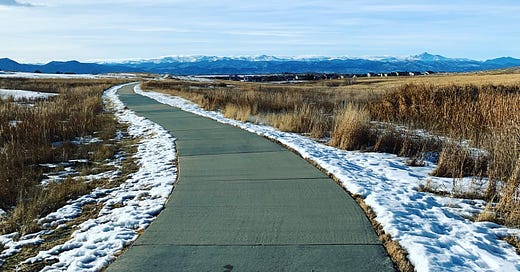Lent: Learn to Walk at a Human Pace
For many of us Protestants, Lent feels like a distinctively Catholic thing. Going to a Catholic high school, I first heard about Lent there; my friends gave up chocolate for Lent, but just sort of. Since then, I’ve seen the helpfulness and beauty of the church calendar, and, I practice Lent, too. But often we have some mistaken ideas about what this time is all about.
We have the idea that if we give up chocolate, or alcohol, or Netflix, that we’ll be better Christians. Lent, as a spiritual practice, is something we often engage in to curry favor from a holy God. He’s sure to be happy if we limit ourselves, if we fast, if we confess our sins more often. Or at least if we give up chocolate for 40 days.
But like many things in the church, the church calendar is meant to help order our affections towards God. It doesn’t mean that we somehow earn favor or special standing. It does not make us better or change our justification. However, these practices shape us, too — not in order to earn favor with God but as a way to be God’s apprentices and follow how He says life works best. Dallas Willard reminds us:
“We should not only want to be merciful, kind, unassuming, and patient persons but also be making plans to become so” (The Divine Omission, 29).
Lent helps us make plans towards becoming more like Jesus.
Lent, particularly, is about practicing going without— in order to wean our tastes from the sugary spirituality we might be ingesting, to retrain our tastebuds for the goodness of God. Lent isn’t about making ourselves smaller to be seen by a holy God. Lent is an intentional time in the church calendar where we see what is already there — we are fragile creatures, limited in our bodies, minds, and souls and limited in our desires and affections.
Lent reminds us we are human. We are not machines. We cannot be everywhere at once. And a diet of Western upward mobility is not doing our souls any favors. Lent isn’t a time to wallow or pay penance: it is to name what is already there. We are humans with limits.
In A Spacious Life, I wrote how limits are built into creation:
“Limits were very good — they showed us the path for the world as it ought to be. Limits of relationship, limits of purpose and calling, limits of authority — each was an invitation into community with one another and with their Creator who walked with them in the cool of the evening. Limits are an invitation into flourishing.”
Lent reacquaints us with our limits and in so doing, we’re not just barred from all the things we might choose to fast from. No, fasting from things retunes our affections. But disciplines like fasting also open us up to partner with the Spirit. We get out of ruts. We begin to see how limits help us press into God. Limits aren’t restrictions that bar us from life: they are the doorways into the kingdom life.
Limits aren’t restrictions that bar us from life: they are the doorways into the kingdom life.
On Instagram, I’ve long documented my suburban walks — first in a neighborhood in southern California, and now in a neighborhood in northern Colorado. It helps me practice paying attention. First it was a way for faith to move outward: what did I see were the needs of my place? Who was I coming into contact with? Where could I see how my own life intersected with the needs of the world (and in particular, my neighborhood)? It was what drove much of Finding Holy in the Suburbs.
Now — perhaps because it is covid-tide or because we are in a new spot of the country and in our faith — I walk and remind my friends and followers on Instagram to “move your body at a human pace.” Moving our body at a human pace means we take into consideration our real limits. Sometimes our energy flags, sometimes we’re not able to walk much at all, sometimes we’re energized and rejuvenated. Each time we move our body at the pace of that day, we’re invited to name our limits (not push them down or fight them) and we’re invited to see them as a gift.
If we let them, our limits are invitations to knowing God and making him known.They aren’t what bar us from God; they’re invitations to press in closer.
I love when I have a thoughtful companion on a walk. And I love to be that thoughtful companion. So for Lent, I’m creating a 40-day journey to help you “Walk at a Human Pace”; it will be an audio download you’ll be able to find in my shop. Each day, I’ll read a passage of scripture, ask a question or two, and allow you to notice what’s around you. As you move your body at a human pace, I hope you’ll be able to experience Lent less as a period of deprivation from good things, and more as a period of finding life-giving rhythms for what you already know to be true: God is good. He’s created you with limits. Your limits are an invitation to know him and experience Emmanuel, God with us, even as you fast and wait and prepare your heart towards Easter. We are limited. We are creatures. God welcomes us into our limits so that we may find our rest in Him.




